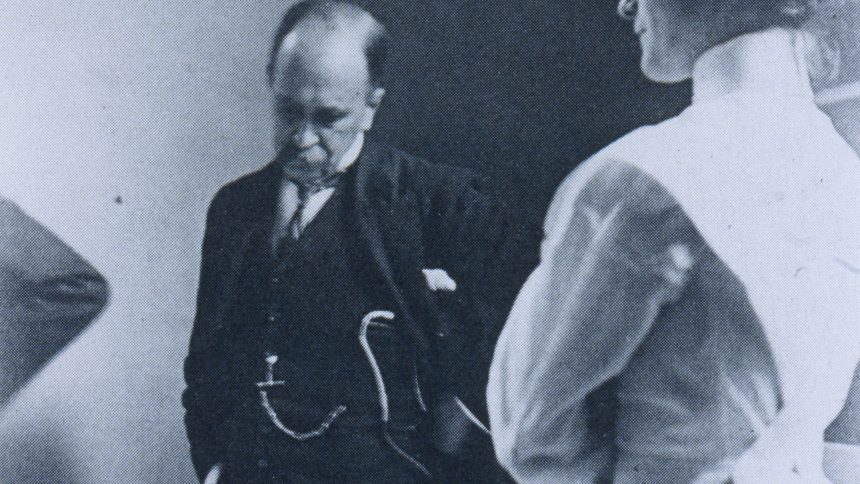“Know him,” the Neurosurgeon said, as we
Huddled expectantly, our white coats gleaming.
Armed with newly honed skills in taking a history
We enquired about headache and vomiting.“No, really know him,” the Consultant insisted, although
we did not understand. “Listen without assuming,
discover who he is and never suppose
what his passions are or what he dreams of becoming.”Textbooks closed and the patient transformed, perceptibly
Blossoming into an eager adolescent, not much younger than us,
Someone you could love like a brother and we scarcely
Noticed the intention tremor and mild unsteadiness.The Sister stared when we returned once more.
“He died,” she said and briskly shut the door.
Helen Gibson, The Neurosurgical Teaching Round, with the author’s permission.
Commentary
All professionals remember times when an individual patient’s story really touched them. The author is a retired paediatrician, but this experience from her days as a medical student stayed with her.
To be most useful to patients, and to ourselves, we tread a line between knowing and understanding patients, and being so close that we are devastated when things go badly – and then less use to the patients who follow. It is important to strive to get that balance right.
Dr Gibson’s poem was commended in the 2017 Hippocrates Poetry competition.
Further info
- The Hippocrates initiative for Poetry in Medicine runs the annual Hippocrates Poetry competition. You can buy the book of winning and commended poems for 2017 and previous years on their website.
- Author details (well down the page, search for Gibson) from the Hippocrates Prize list. Published with the permission of the author.
- The featured image shows Sir William Osler on a ward round at Johns Hopkins hospital (Wellcome Images L0074449). He was a physician not a neurosurgeon, but is known for emphasising the centrality of the patient in medicine and medical education: “Medicine is learned by the bedside and not in the classroom”; “The good physician treats the disease; the great physician treats the patient who has the disease”.
Contributed by
Neil Turner

